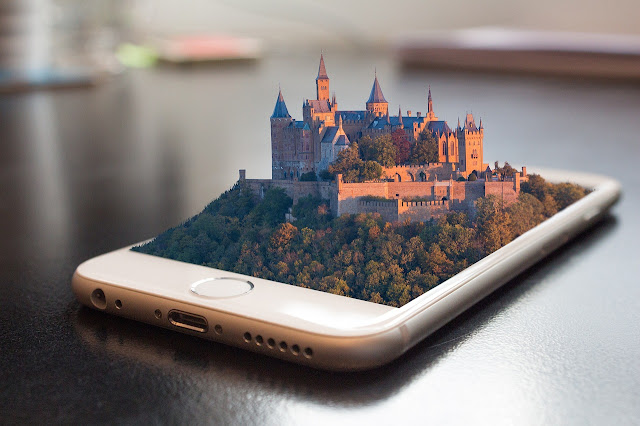The Future is Here: Exploring the Wonders of Virtual Reality (VR)
Virtual Reality (VR) has evolved from a sci-fi fantasy to a groundbreaking technology that’s transforming industries, entertainment, education, and even social interactions. With VR headsets becoming more accessible and immersive, we’re stepping into a digital world where the boundaries between reality and simulation blur.
What is Virtual Reality?
VR is a computer-generated simulation that allows users to interact with a 3D environment using specialized headsets, motion sensors, and controllers. Unlike traditional screens, VR fully immerses users in a digital world, making them feel like they’re truly "inside" the experience.
How VR is Changing the World
1. Gaming & Entertainment
The gaming industry has been one of the biggest adopters of VR. Games like Beat Saber, Half-Life: Alyx, and Resident Evil 7 offer mind-blowing immersion, letting players physically dodge bullets, swing swords, or explore eerie virtual worlds. Beyond gaming, VR concerts (like Travis Scott’s Fortnite event) and virtual cinemas are redefining entertainment.
2. Education & Training
VR is revolutionizing learning by providing hands-on experiences without real-world risks. Medical students practice surgeries, pilots train in flight simulators, and engineers explore 3D models of complex machinery—all in a safe, controlled virtual space.
3. Remote Work & Collaboration
With tools like Meta Horizon Workrooms and Microsoft Mesh, professionals can meet in virtual offices, collaborate on 3D designs, and interact as lifelike avatars—making remote work more engaging than ever.
4. Healthcare & Therapy
VR is being used for pain management, PTSD treatment, and phobia exposure therapy. Patients can confront fears (like heights or spiders) in a controlled environment or escape hospital rooms through calming virtual landscapes.
5. Social VR & Virtual Worlds
Platforms like VRChat, Rec Room, and Meta’s Horizon Worlds allow people to socialize, attend events, and even create digital identities in shared virtual spaces. The metaverse concept is pushing this further, envisioning a future where we live, work, and play in interconnected VR worlds.
The Challenges of VR
Despite its potential, VR still faces hurdles:
Cost: High-end VR setups can be expensive.
Motion Sickness: Some users experience discomfort.
Limited Content: While growing, the library of VR experiences is still developing.
Privacy Concerns: As VR collects movement and biometric data, security is crucial.
The Future of VR
With advancements in haptic feedback (touch sensations), eye-tracking, and AI, VR will become even more realistic. Wireless headsets, lighter designs, and better graphics will make VR mainstream. As the metaverse expands, we might see a future where virtual and physical realities seamlessly merge.
Final Thoughts
Virtual Reality is no longer just a gimmick—it’s a transformative technology reshaping how we play, learn, work, and connect. Whether you're a gamer, a professional, or just curious, VR offers endless possibilities.
Are you ready to step into the virtual world? 🚀
What’s your favorite VR experience? Share in the comments!





.jpg)



0 Comments